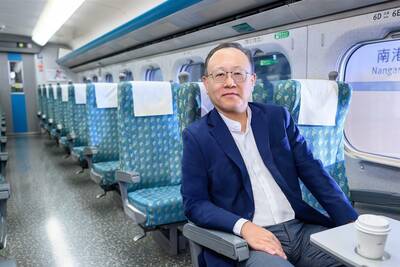Travel agencies that hire tour guides who can speak Southeast Asian languages will receive government subsidies, the Tourism Bureau said yesterday.
The policy is part of the government’s “new southbound policy” that seeks closer relations with Southeast Asian nations in tourism, education and economy.
While the government in July waived visa requirements for tourists from Thailand and Brunei, Taiwan still lacks tour guides who speak Southeast Asian languages, including Thai, Vietnamese, Indonesian and Malay.
Based on the rules stipulated by the bureau, travel agencies would be eligible to receive subsidies for recruiting tour guides speaking any of the Southeast Asian languages, or hiring translators for tour groups.
Tour guides who can speak any of the languages would receive NT$2,000 (US$63.12) per tourist per day, the bureau said.
Should a group have two such tour guides, only one of them would receive the subsidy, it added.
The total subsidy for each tour group was capped at NT$10,000 and tour guides would not be able to receive subsidies more than twice, the bureau said.
The bureau has allocated NT$3 million for the program, with the application deadline set for April next year.
The bureau can end the program earlier if the budget runs out before the deadline, it said.
To qualify for the subsidies, the tour guides must either be certified to guide tour groups speaking Thai or other Southeast Asian languages and have been working as a tour guide for less than three years, or they must be certified in other languages, and have received training in any of the Southeast Asian languages within the past two years.
Travel agencies can also apply for the subsidies if tour guides who have held a license for speaking any of the Southeast Asian languages for less than three years are recruited to accompany a tour group as part of their training.
Subsidies can also be given to translators that the travel agencies hire to assist the tour guides.

The inspection equipment and data transmission system for new robotic dogs that Taipei is planning to use for sidewalk patrols were developed by a Taiwanese company, the city’s New Construction Office said today, dismissing concerns that the China-made robots could pose a security risk. The city is bringing in smart robotic dogs to help with sidewalk inspections, Taipei Deputy Mayor Lee Ssu-chuan (李四川) said on Facebook. Equipped with a panoramic surveillance system, the robots would be able to automatically flag problems and easily navigate narrow sidewalks, making inspections faster and more accurate, Lee said. By collecting more accurate data, they would help Taipei

STATS: Taiwan’s average life expectancy of 80.77 years was lower than that of Japan, Singapore and South Korea, but higher than in China, Malaysia and Indonesia Taiwan’s average life expectancy last year increased to 80.77 years, but was still not back to its pre-COVID-19 pandemic peak of 81.32 years in 2020, the Ministry of the Interior said yesterday. The average life expectancy last year increased the 0.54 years from 2023, the ministry said in a statement. For men and women, the average life expectancy last year was 77.42 years and 84.30 years respectively, up 0.48 years and 0.56 years from the previous year. Taiwan’s average life expectancy peaked at 81.32 years in 2020, as the nation was relatively unaffected by the pandemic that year. The metric

TAKING STOCK: The USMC is rebuilding a once-abandoned airfield in Palau to support large-scale ground operations as China’s missile range grows, Naval News reported The US Marine Corps (USMC) is considering new sites for stockpiling equipment in the West Pacific to harden military supply chains and enhance mobility across the Indo-Pacific region, US-based Naval News reported on Saturday. The proposed sites in Palau — one of Taiwan’s diplomatic allies — and Australia would enable a “rapid standup of stored equipment within a year” of the program’s approval, the report said, citing documents published by the USMC last month. In Palau, the service is rebuilding a formerly abandoned World War II-era airfield and establishing ancillary structures to support large-scale ground operations “as China’s missile range and magazine

Passengers on Taiwan High Speed Rail (THSR) will be required to use headphones and make phone calls in gangways under new “quiet travel” rules starting Sept. 22. THSR Chairman Shih Che (史哲) told media that THSR will run a three-month promotional campaign to ensure widespread adoption of the new rules. Those repeatedly ignoring the guidance face the potential termination of their transport contract, which can result in them getting escorted off the train, according to THSR. Shih shared his hope to cultivate an environment conducive to rest and reading for the train’s passengers, stating that these changes aim to “promote self-discipline” among passengers